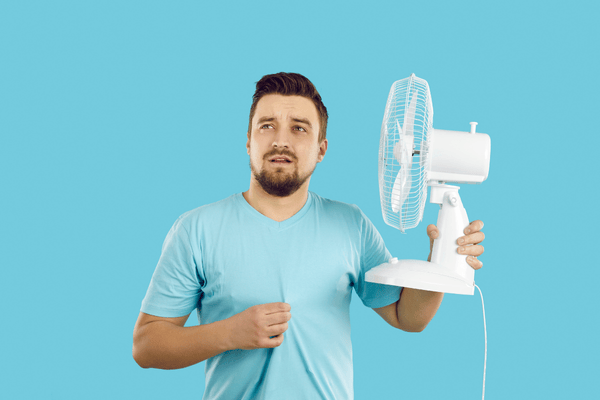Why Is Your AC Not Working? Top Causes and Fixes

When your AC decides to quit on the hottest day of the year, it’s not just inconvenient—it’s downright miserable. At Livinon Mechanical, we understand how frustrating it can be, which is why we’ve put together this handy guide to help you troubleshoot the most common AC problems. Whether it’s a quick DIY fix or a job for the pros, we’ve got you covered. Let’s dive into why is your AC not working and how you can get it back in action.
1. If Your AC Is Not Working, Check the Thermostat
Let’s start with the easiest solution. Sometimes, the problem isn’t your AC at all—it’s your thermostat. Maybe someone (looking at you, kids!) accidentally changed the settings, or the batteries are dead. Check that your thermostat is set to “cool” and that the temperature is lower than the current room temperature.
If it’s unresponsive, try replacing the batteries. For smart thermostats, make sure it’s connected to your Wi-Fi and app. If you’ve double-checked everything and it’s still not working, it could be a wiring issue—that’s where we step in.
2. Dirty Air Filters: The Sneaky Culprit
Dirty air filters are like the forgotten chore of HVAC maintenance. Over time, they get clogged with dust, pet hair, and other debris, which restricts airflow and makes your system work harder than it should. This not only reduces efficiency but can also cause your AC to stop cooling altogether.
Replace your filters every 1-3 months, especially during peak usage seasons. If you haven’t changed them in a while, start there. Trust us, your AC (and your energy bill) will thank you.
3. Power Problems: Is Your AC Even Getting Electricity?
It might sound obvious, but if your AC isn’t turning on, the issue could be as simple as a power problem. Check your circuit breaker to see if it’s tripped. If it has, reset it and see if your AC comes back to life.
Also, inspect the outdoor unit—if it’s not running, make sure the power switch near the unit hasn’t been accidentally turned off. If everything seems fine but there’s still no power, it’s time to call us. Electrical issues can be tricky (and dangerous) to handle on your own.
4. Refrigerant Levels: The Lifeblood of Your AC
Refrigerant is what cools the air in your home, so if levels are low, your AC won’t be able to do its job. Signs of low refrigerant include warm air blowing from your vents, a hissing noise near the unit, or ice forming on the coils.
Unlike filters or thermostats, refrigerant issues aren’t a DIY fix. Low levels usually mean there’s a leak, and adding more without addressing the leak won’t solve the problem. Give us a call—we’ll find the source, fix the leak, and recharge your system to get it cooling again.
5. Frozen Coils: When Your AC Gets Icy
Ice on your AC might sound refreshing, but it’s actually a bad sign. Frozen coils are usually caused by restricted airflow (dirty filters again!) or low refrigerant. When coils freeze, your system can’t cool properly.
Turn off your AC and let the coils thaw completely before turning it back on. While you’re waiting, check your filters and vents to ensure proper airflow. If the problem persists, it’s time to call in the experts. We’ll diagnose the issue and get your system back to normal.
6. Faulty Components: The Heart of the Problem
Your AC is a complex machine with many moving parts, and when one of them fails, the whole system can suffer. Common culprits include faulty capacitors, compressors, and fans. If your system is making strange noises (buzzing, clicking, or grinding), it’s often a sign that one of these components needs attention.
Trying to fix these issues yourself can lead to more damage. Instead, let our trained technicians handle the repairs. We’ll replace the faulty part and ensure everything else is running smoothly.
7. Blocked Condenser Unit: Clearing the Path to Cool Air
Your outdoor condenser unit plays a crucial role in cooling your home, but it’s often overlooked during routine maintenance. Leaves, dirt, and other debris can block the unit, reducing its efficiency and causing your AC to work harder.
Give the unit some breathing room by clearing away any obstructions and gently rinsing it with a hose (be sure to turn off the power first!). Regular cleaning can prevent bigger issues and keep your system running at its best.
8. When to Call a Professional: Don’t Wait Too Long for AC Repairs
Sometimes, no amount of troubleshooting will fix the issue, and that’s okay. Knowing when to call a professional can save you time, money, and frustration. If you’ve tried the simple fixes and your AC is still not working, or if you’re dealing with refrigerant or electrical issues, it’s time to reach out.
At Livinon Mechanical, we’re here to help. Our team can quickly diagnose and repair any AC problem, ensuring your home stays cool and comfortable. Don’t wait until the issue gets worse—give us a call at the first sign of trouble.
Conclusion: Stay Cool and Take Action When Your AC is Not Working
A broken AC doesn’t have to ruin your day. By understanding the common causes and knowing when to call in the pros, you can get your system back up and running in no time. Whether it’s a quick filter change or a more complex repair, Livinon Mechanical has your back.
If your AC still isn’t working after troubleshooting, don’t sweat it—literally! Contact us today, and let’s get your home cool and comfortable again.
AC Not Working & Need Fast Repairs? Contact Us Today!
Don’t let a malfunctioning AC leave you in the heat. Call Livinon Mechanical now for reliable, fast, and friendly service. Stay cool with us!
